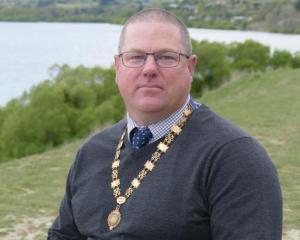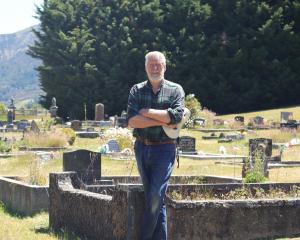
The funding had been removed from the council’s plans this year, but on Wednesday regional councillor Michael Laws successfully moved that ORC funding for a Wānaka public transport bus case be returned to the council’s budget for the next financial year.
"I’d like to thank the Upper Clutha community board and QLDC for their positive submissions to the ORC’s annual plan. The information and advocacy that they provided was vital," Mr Laws said.
Wānaka/Upper Clutha is the fastest growing ward in the Otago region, followed closely by Cromwell.
"Neither receive a public transport service but pay for those provided in Dunedin and Queenstown through our general rates. So today’s decision is a minor recompense for that levy."
The Wānaka community has been petitioning the ORC for a public bus service for years.
The original aim of the ORC was to partner for NZ Transport Agency Waka Kotahi to assess the need and costings. But when the agency withdrew its co-funding, the council pulled out.
Mr Laws said the cost of a business plan was relatively modest — $250,000 funded by the entire Otago region through general rates.
"That’s only fair. Wānaka residents have been subsidising Dunedin and Queenstown consumers for years.
He said his next aim was to get similar ORC funding for Cromwell and the Central Otago district. Cromwell is the second fastest growing ward in Otago after Upper Clutha.
"Affordable public transport would improve employment, shopping, sporting and recreational activities for local residents."
Meanwhile Mr Laws and Dunstan ward regional councillor Gary Kelliher failed their attempt to reduce ORC staff numbers over the next three years.
Mr Kelliher’s motion sought to reduce Otago regional council staff numbers from 360 fulltime staff to 300 by 2028. It was seconded by Mr Laws.
Mr Laws pointed out that ORC staff numbers had more than doubled over the past six years, from 170 full timers in 2020 to 355 this year.
The number of ORC staff earning over $120,000 per annum had more than doubled in that time from 30 in 2021 to 68 in 2024.
"In addition, staff salary increases of 5% and 4.5% over the past two years are well out of whack with the private sector. And there’s been no discernible improvement in service or effective environmental action. Other councils see the problem, but not the ORC."
Although there was some sympathy around the council table, a significant majority of ORC councillors voted down the motion 8-2.
"It’s an issue that I won’t give up on," Mr Kelliher said.
"At an average $150,000 cost per staff member, staffing is the ORC’s largest expense and greatest burden upon ratepayers."











